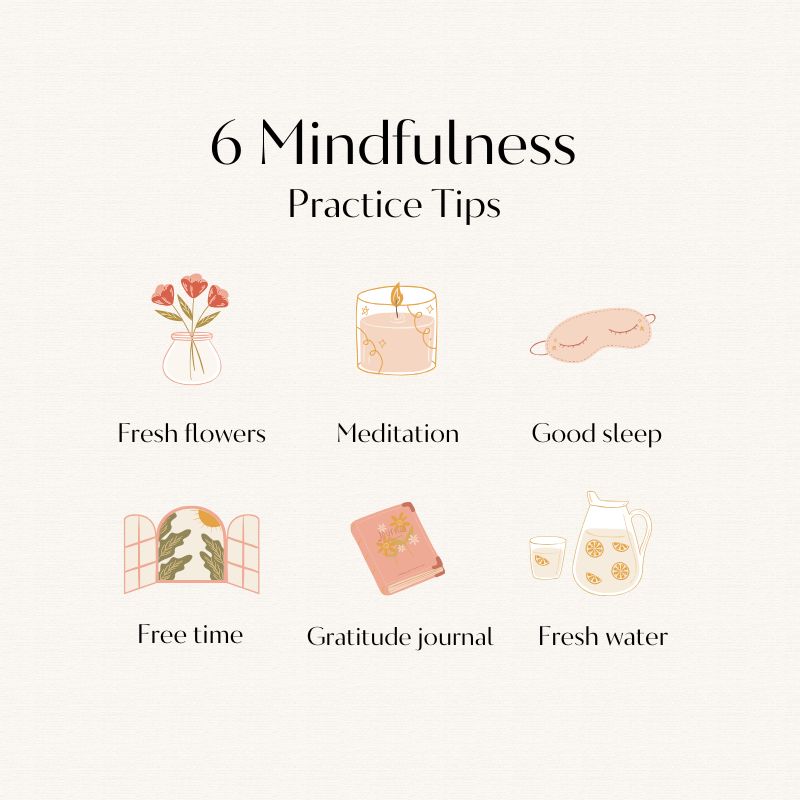Mindfulness is the practice of paying full attention to the present moment without judgment. It involves being aware of your thoughts, emotions, and physical sensations while maintaining a calm and accepting attitude. In a world where stress and distractions dominate, mindfulness has become a powerful tool for mental well-being and emotional regulation.
How Mindfulness Helps
Mindfulness helps by creating a mental space between your emotions and reactions. Instead of responding impulsively, mindfulness encourages thoughtful and intentional responses. This can reduce stress, improve decision-making, and enhance overall mental clarity. For emotional control, mindfulness teaches you to observe emotions without letting them dictate your behavior, which is key in building resilience.
Benefits of Mindfulness for Mental Well-being
- Reduced Stress and Anxiety: Mindfulness lowers cortisol levels and helps calm the nervous system.
- Better Emotional Regulation: It allows you to respond to emotions rather than react impulsively.
- Enhanced Focus and Concentration: Regular mindfulness practice improves attention span.
- Improved Relationships: By being present, you communicate and connect better with others.
- Stronger Resilience: Mindfulness builds mental strength, helping you cope with challenges more effectively.
Top Mindfulness Practices to Improve Emotional Control

Here are the most effective mindfulness practices you can start today:
1. Mindful Breathing
Take slow, deep breaths and focus on each inhale and exhale. Breathing exercises calm the nervous system and bring immediate relief during emotional highs.
2. Body Scan Meditation
Start from your head and mentally scan down to your toes, observing any sensations without judgment. This practice helps release physical tension linked to emotions.
3. Mindful Journaling
Write down your thoughts and feelings as they occur. This allows you to process emotions without bottling them up.
4. Yoga and Gentle Movement
Combining mindfulness with movement, yoga helps balance the mind and body while reducing stress hormones.
5. Loving-Kindness Meditation
This practice focuses on sending compassion to yourself and others, which can reduce anger and resentment.
6. Five Senses Grounding
Pause and notice: 5 things you see, 4 things you touch, 3 things you hear, 2 things you smell, and 1 thing you taste. This method keeps you anchored in the present.
How to Build a Daily Mindfulness Routine
- Start with 5 minutes daily and gradually increase to 15–20 minutes.
- Choose a quiet space free from distractions.
- Use guided meditation apps or calming music.
- Consistency is key practice at the same time each day.
- Pair mindfulness with other habits like morning tea or a bedtime routine.
The Science Behind Mindfulness and Emotional Control
Research shows that mindfulness activates the prefrontal cortex, the brain region responsible for decision-making and emotional regulation, while calming the amygdala, which triggers stress responses. Regular mindfulness practice rewires these brain areas, making you less reactive and more balanced emotionally.
Additional Benefits Beyond Emotional Control
- Better Sleep Quality
- Improved Immune System
- Increased Self-Compassion
- Enhanced Creativity and Problem-Solving
FAQs About Mindfulness and Emotional Control
1. How long does it take for mindfulness to improve emotional control?
Most people notice benefits within 4–8 weeks of consistent practice.
2. Can mindfulness replace therapy or medication?
No. Mindfulness is a complementary practice, not a replacement for professional treatment.
3. Is mindfulness the same as meditation?
Mindfulness includes meditation, but it can also be practiced during everyday activities like walking or eating.
4. Do I need special tools to practice mindfulness?
No. You only need a quiet space and focus, though apps and journals can help.
5. Can mindfulness help with anger issues?
Yes. Mindfulness reduces impulsive reactions and promotes calm thinking, which helps manage anger effectively.
Final Thoughts
Mindfulness practices are more than just a trend they are a science-backed method for improving emotional control and overall mental health. By incorporating simple techniques like mindful breathing, journaling, and yoga into your daily routine, you can build resilience, clarity, and emotional balance. In a fast-paced world, mindfulness gives you the power to pause, reflect, and respond with intention rather than reaction.Ready to take control of your emotions and improve your mental well-being? Start your mindfulness journey today. Begin with just 5 minutes a day and watch how it transforms your life. For more expert tips on mindfulness and emotional well-being, stay connected with our website https://mindscribes.com/

